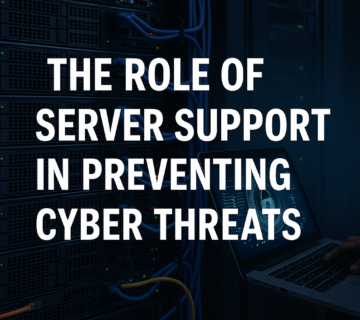Don’t Trust the Wi-Fi
IT support providers in Southern California have diversified IT security in a substantive way, and this has come as a necessity. Mobile markets are expanding with the cloud, which is rolling in from the technological “west” of Silicon Valley. An edge computing cumulonimbus is likewise on the way, and as a result, many businesses are sending their employees into a remote operating norm.
Provided employees access the web through the right kind of Wi-Fi, businesses won’t have much trouble. However, if your employee is hoodwinked by a hacker posting a “dirty” Wi-Fi network designed to provide cybercriminal access, then your whole network could be compromised. That said, if you’ve taken the proper precautions, this won’t be as likely. Several notable strategies that you should teach your employees to follow include:
- Disabling sharing features
- Ensuring computer firewalls are enabled
- Using HTTPS and SSL sites as much as possible
- Looking into VPN (virtual private network) solutions
- Ensuring Wi-Fi is disabled whenever it’s not in use
Disabling Sharing Features
IT support providers in Southern California offering IT security will often advise remotely operating employees to ensure the sharing setting is enabled whenever using a known Wi-Fi network. However, any unknown network should not be entered with enabled sharing. Public networks must be cautiously approached. It may make sense to only turn on sharing when a share is necessary, but it depends on your specific business.
Ensure Computer Firewalls are Enabled
Even lower-end laptops often include firewall protection settings that can be turned on by accessing security settings. The more protection you have, the better. If you’ve already got some type of protection measure available, there’s no reason not to use it.
HTTPS and SSL Sites Should Be Used as much as Possible
An HTTP website doesn’t have the same level of protection as an HTTPS site. The “S” stands for SSL certification. A Security Sockets Layer encrypts data to ensure it isn’t accessible to cyber criminals. Look for the padlock icon and the “s” after the “http” designation.
Look into VPN (Virtual Private Network) Solutions
Unfortunately, you’re not always going to be able to secure SSL sites. VPN solutions allow for an additional layer of protection.
Ensure Wi-Fi is Disabled Whenever It’s Not in Use
Many just leave their Wi-Fi on continuously— this is a big no-no. Undercover hacker networks look for that kind of thing, and can seriously compromise your network, your device, or anything else they’re able to obtain access to.
What makes sense is to work with your MSP when it comes to educating your staff. Ensure they keep you up to date on new protection strategies and developing cybercrime threats. As technology advances, so do the ways in which hackers try to compromise systems. This is something that has no solution as of yet, except through acknowledging the issue and preparing in advance.
Securing Your Business
IT support providers in Southern California, especially here at ecasys, can provide the kind of IT security you can rely on. We offer cutting-edge security solutions in addition to many other avenues of information technology application. Contact us for reliable solutions that will allow your employees to function with heightened security— even remotely.



